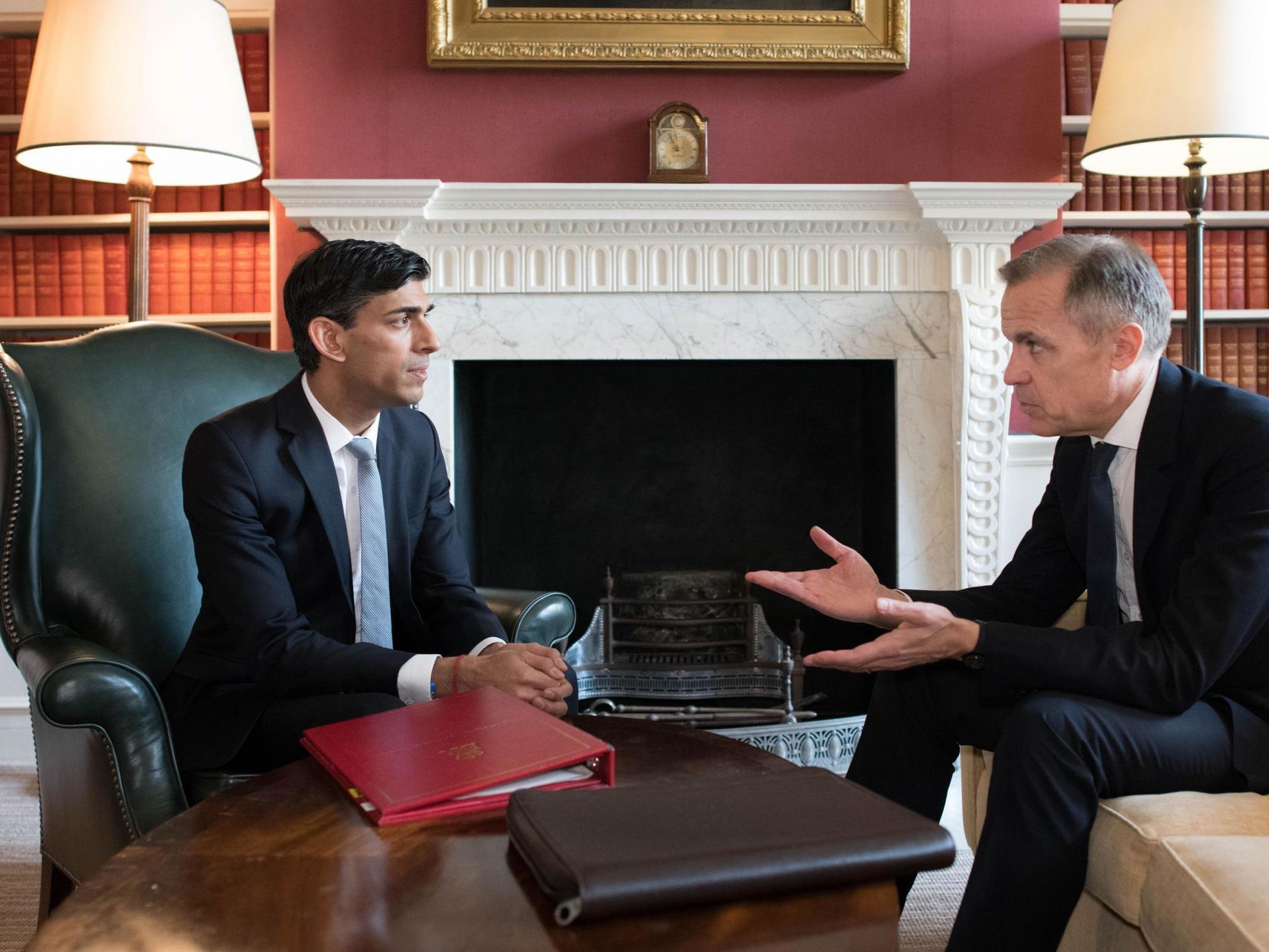Taxes are rising everywhere thanks to coronavirus. But in Britain, the wealthiest will be hit the hardest
The pencilled-in rises seem set to raise an additional £30bn in revenue, says Hamish McRae. But unfortunately, it won’t be enough to fix things


Britons will have to pay more tax, but so too will everyone else across the developed economies. That might seem small comfort, but it is the reality of the post-coronavirus world. The great swath of income and wealth that has been lost has to be made up somehow, and it will be a mix of taxpayers and savers that pay it: taxpayers obviously through higher taxation, savers less obviously through low or negative real returns on their savings.
There are questions about the size of the bill, for the faster economies recover, the lower the costs. There are questions about the balance between taxpayers and savers. And there are questions about the extent to which the burden should be shifted forward to future generations by allowing greater public borrowing now. But the harsh truth is that the bill has to be paid and we are starting to catch a glimpse of how different countries will pay it.
In the UK, Rishi Sunak, the chancellor, is known to be preparing a set of tax increases, with the stories over the weekend designed to pave the way for them. These will include some sort of increase in corporation tax, changes to pension tax relief (which need to be changed anyway), and increases in capital gains tax. The pencilled-in rises seem set to raise an additional £30bn in revenue, which may not seem a lot in the context of total government revenues of more than £800bn, or about 38 per cent of GDP. But the problem is that two-thirds of the revenues come from three taxes: income tax, National Insurance, and VAT, and the government has pledged not to increase the rates on any of these. So unless those pledges are broken – not a good thing to do in politics or indeed in life in general – Sunak has to work on the remaining third. That is what he will do.
Can he get revenues above 38 per cent of GDP for long? Difficult, because that is already the highest level of revenue to GDP for almost 40 years. But he has to try.
Unfortunately, an extra £30bn a year won’t be enough to fix things. So everything that the government spends will have to be scrutinised. It will also have to try to hold down borrowing costs, for the national debt is now more than £2,000bn. Fortunately for the government, not for savers, interest rates are likely to remain negative in real terms for some time, not just in the UK but throughout the developed world. At some stage, inflation will rise and rates will have to follow – I think this will happen sooner than the market currently expects – but meanwhile, debt service costs will be contained.
And this is happening all over the world. Germany has stronger national finances than any other large economy. It was actually running a surplus before the virus struck. The country is now using that position to spend on a mighty scale. But on Friday Angela Merkel warned that this would test the country’s finances for months, if not years.
“In retrospect,” she said, “I’m happy we didn’t succumb to the sweet poison of borrowing in good times.”
She is right of course. However, a less sweet poison is being administered to German savers, for the interest rate on 10-year German government debt on Friday was minus 0.4 per cent. Taxpayers will almost certainly have to pay some of the bill, but it will be savers who will be hit hardest. Rates were already negative before the crisis, but they are now firmly stuck there and are likely to remain so for longer.
In the US, a similar story is emerging. Fiscal policy is confused by the election and there is not much that can sensibly be said about it. Everything is political, including whether there will be another Federal Reserve payment to families just before the polls, accompanied by a letter from Donald Trump.
But monetary policy became clearer, for the Federal Reserve chair Jay Powell said last week that it would be prepared to allow inflation at over 2 per cent “for some time” if there has been a period beforehand when it has been below it. The aim would be to have an average inflation of 2 per cent. The 10-year US treasury debt yield on Friday was 0.7 per cent. American investors won’t lose money quite as fast as Germans, but they too will be footing the bill. The US, like every other country, will try to use inflation to whittle down the real value of the national debt. The Fed is simply being a little more explicit about this.
British taxpayers are going to pay more, and since most tax is paid by the rich or at least relatively rich, they will be the people who are hardest hit. Realistically that is what will happen everywhere. But this will be visible. The bill for savers, either directly or through their pensions, is much less visible. They will be paying over many years through the gradual decline in the real value of their savings. It is a poison, and not a sweet one at all.
Join our commenting forum
Join thought-provoking conversations, follow other Independent readers and see their replies
Comments